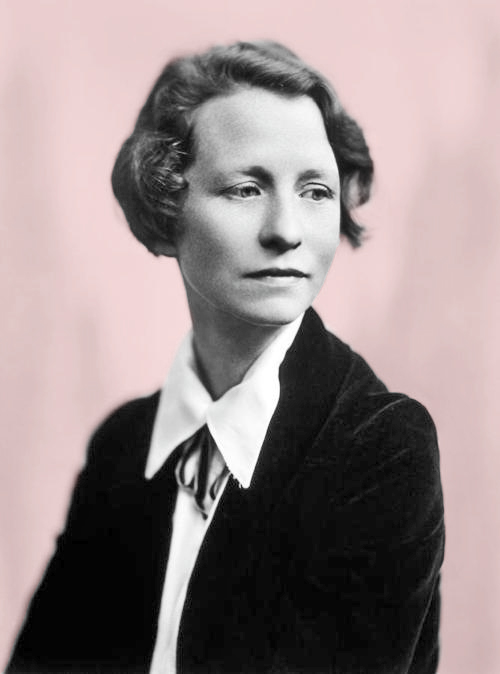
Here, Edna St. Vincent Millay writes to Charlotte Babcock Sills, a friend from Vassar, about the Christmas present Millay had given to her—a new book of her poetry, containing the poem “Make Bright the Arrows.” Although Millay previously had been a dedicated pacifist, during World War II, Millay would write poems in support of the Allied Forces, even working with the Writers’ War Board to help create propaganda. Sills was angry at Millay for the content of the poems. As Millay predicts in the letter below, the work would damage her reputation in literary circles.
Charlie, my dear:
I am more distressed than I can tell you to learn that my Christmas gift, which I hoped might give you pleasure, gave you instead pain, hurt you and made you angry, but my dear girl, when we were in college together, were you (this is a joke) either fairly bright or pretty dumb?—because the reason why this book hurt you is because you utterly and thoroughly and from cover to cover misunderstood its meaning.
Think back, did I ever once, so far as you can remember, do anything, even a little thing, to hurt you, even a little bit, knowingly? And don’t you realize that I know perfectly well that you have three grown boys? And if this book had really been the book you took it to be (being so convinced at the outset that that you were right about this, that you were unable afterward, no matter what you read in it, to learn that you were mistaken) would I have done the insolent and cruel thing which it would have been to send to you and Mac a book of poems trying to incite this country to send American boys into foreign lands to fight?
Please read once more, I beg you to do this, and this time with a reading mind, not with a mind which is quite naturally frightened and shrinks from what it considers is trying to send your boys to war, at least the very first poem in this book. I mean the small poem at the very beginning of the book; the poem which starts “Make bright the arrows”. I beg you earnestly to read this with great care, giving particular attention to the phrase, “The bowman feared need never fight”, and to the phrase further on, “O peaceful and wise”. See if you then cannot understand that what I am trying to do with every bit of my strength, and being very ill all the time I am working, is not to get this country into war, but keep it out of war.
Is it not unjust of you, my dear friend, to accuse me of trying to incite this country to send an army to fight on foreign soil just because my idea as to how best to keep this country out of war differs radically from yours?
Perhaps I am mistaken in my viewpoint, which is shared as you must know, by thousands of other good United States citizens who love their country and its democratic ideals, its freedom, its individual liberties quite as much as you possibly can. If I am mistaken, and if those who think as I do are mistaken, it will indeed be a terrible, an unthinkable error to have made. Neither of us can know which is right. Each of us can only do his utmost to further the cause which he believes to be right.
You say that if I had three grown boys as you have I would feel differently about it. There is little doubt probably that I should feel differently about it, but I do not for a moment believe that I should think differently about it. And though I have no sons to be caught in this war, if we are caught in it, I have one thing to give in the service of my country, —my reputation as a poet. How many more books of propaganda poetry containing as much bad verse as this one does, that reputation can withstand without falling under the weight of it and without becoming irretrievably lost, I do not know—probably not more than one. But I have enlisted for the duration.
Have you the slightest conception of what this reputation means to me, who have been building it carefully for more than twenty years, taking a long time, months, sometimes as long as several years before permitting a poem to be published because I felt that in one line of it, one syllable was not as close to perfection as I might be able to make it? You see by the dates on the poems in this book that they were written in a furious haste and published as soon as they were written. They are, with a few exceptions, considered as poetry, faulty and unpolished; and whatever the final verdict of our generation or the next may be upon me as a poet, there are already, I know quite well, thousands of people, true lovers of pure poetry, and who have—for I am humbly proud of this and feel no arrogance in saying so—in past years thought very highly of mine, who will, no matter what I may write in the future, never forgive me for writing this book.
Thus, you see, the dearest thing in life I possess which might possibly be of help to my country, has already gone over the top, in the hopes that your sons need never go to war.
Affectionately,
Vincent
From Letters of Edna St. Vincent Millay. Millay, Edna St. Vincent. Westport, Conn.: Greenwood Press, 1972.


